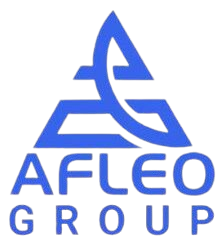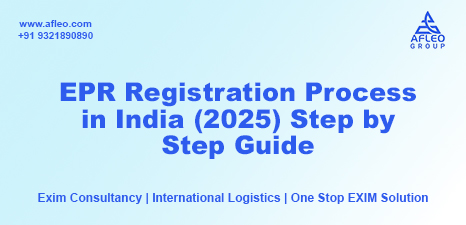Growing environmental consciousness in India has resulted in adopting strict regulations for waste minimization and promoting eco-friendly disposal. One of them is Extended Producer Responsibility (EPR), according to which the responsibility for waste management lies with producers, brand owners, and other interested parties. EPR is a crucial element of Indian environmental policy, particularly among packaging waste, e-waste, battery, and tire industries.
Up to 2025, registration under EPR was never as important as it is now because now it is mandatory for companies belonging to some categories. MoEFCC and CPCB already issued correct guidelines to be followed by companies so that they can register under EPR. The following is step-by-step guidance that will guide you through the process of EPR registration and documents to be submitted, along with steps to be followed.
[Learn more about EPR Certificate]
Who Should Register Under EPR?
EPR is applied on most business operations, and registration under EPR is dependent on the type of goods and services one handles. The following businesses need to register under EPR:
- Producers: Companies that produce goods with packaging and thus generate waste, e.g., plastic packaging, waste electronics or electricals, tyres.
- Importers: Businesses who import products into India, who might create waste due to packaging or fall into some specific waste category like batteries or electronics.
- Brand Owners: Businesses who retail and own brand names but don’t produce the product themselves but create waste due to branding on products.
- Manufacturers: Claims those businesses that produce products who might create waste, i.e., electronics, batteries, plastics, etc.
- E-commerce Sellers: Individual merchants or web-based operators selling products that are left behind as waste material also come under the ambit of EPR.
Any firm falling under these categories that is involved in the manufacture, import, or sale of products generating environmental waste must register under EPR, in compliance with Indian environmental standards as per CPCB guidelines.
[More Info about CPCB guidelines here]
Documents Required for EPR Registration
To register for EPR, companies need to submit some documents for processing. Some of the documents required are mentioned below:
- PAN (Permanent Account Number): A unique identification number issued by the government.
- GST (Goods and Services Tax) Registration: This is proof of genuineness of your company.
- CIN (Company Identification Number): A unique identification number given to your company in case it is a registered company under the Companies Act.
- Product Details: Depending on the category of waste you’re registering for, details about the type of waste generated must be provided. This can include plastic packaging, e-waste, battery waste, or waste tires.
- Authorised Signatory Details: A government-recognized individual authorized to act on behalf of the company for legal and official purposes.
- Pollution Control Board Consent: Wherever necessary, companies generating poisonous waste or requiring special environment penalty must obtain assent of Pollution Control Board.
All this paperwork is a necessary formality for smooth EPR registration, and preparing these documents in advance helps save time.
EPR Registration Process: Step-by-Step
EPR registration procedure is easy but needs to be executed carefully and accurately. Here are step-by-step procedures to be adopted:
1. Visit the CPCB EPR Portal
The first step is to visit the CPCB EPR official website. It is an online portal via which business companies need to register themselves, upload their documents, and track their progress.
2. Select the Correct Category
After you have arrived at the portal, click all EPR portals of CPCB & select the correct category of waste for which you wish to register.
Depending on products your business is handling, you may select one of the following:
- Plastic Waste
- E-Waste
- Battery Waste
- Tyre Waste
- Used Oil Waste
Ensure that you select the correct category as it will determine what policy and standards will be enforced upon your business.
3. Create an Account
If you are not yet registered on the CPCB portal, then you need to register yourself. That would mean providing some information about your company, such as company name, address, and details of authorized signatory.
4. Complete the Registration Form
After registering an account, you will be invited to complete the registration form. The form will ask you detailed information regarding business activities, waste quantities generated, and waste management practices. You must enter correct and complete information.
5. Upload Required Documents
Once you have filled in all the fields of the registration form, you would be asked to upload your PAN, GST, product description, and Pollution Control Board permission if any. The documents have to be legible and should not be scribbled because if there are illegible or unclear documents, approval process will take additional time.
6. Pay the Relevant Charges
There can be some charge for registration in EPR, based on circumstances. They are based on category and business type. You will know on the portal how much fee you will be paying in advance and thus upload your registration.
7. Upload & Wait for CPCB Approval
After completing all the forms and paying the fees, submit your clearance application. CPCB will scrutinize your submission and accept or request further information. It would take 15-30 working days depending on the type of your application.
Timelines & Validity
- Processing Time: Approving will take about 15 to 30 working days once submitted. Depending on the volume of registrations along with the viability of your papers, it might be shorter or longer.
- Validity of Registration Certificate: Your approval lasts one year from date approved. You must renew after which to maintain harmony with EPR norms.
- Renewal Process: The renewal process is similar to the initial registration process, where you’ll need to update your details and submit any new documentation as required. It’s important to initiate the renewal process well before your registration expires to avoid any compliance issues.
Post-Registration Compliance
After completing the EPR registration, the responsibility of maintaining compliance shifts to the registered entity. Here are some critical post-registration duties:
- EPR Targets and Compliance: Each business firm enrolled under EPR must give some recycling targets for products. You must comply with these targets so you are well-off with the CPCB.
- Return filing: You will be asked to file quarterly returns as well as annual returns describing the quantity of wastes produced, waste disposal activity, and recycling activity. Default in return filing will invoke penalty.
- Record keeping and documentation: Companies would have to keep records of waste management activity, such as recycling certificate, contracts with recyclers, and clearance of wastes. Records would need to be filed in preparation for CPCB inspection.
- Cooperation with Approved Recyclers/Producers: There must be cooperation with approved recyclers or Producer Responsibility Organizations (PROs) to meet recycling goals. Such organizations ensure proper handling and disposal of waste.
Common Issues and Errors
EPR registration is an easy procedure, but businesses typically have common problems:
- Lack of Documents: The most glaring reason for rejection or delay is because of lack of documents. Ensure that you supply all the documents required in proper form.
- Misregistration Category: If you are registered in the wrong category, you might be at a lower level of processing and even have to re-register in the correct category.
- Failure to Update Information on a Regular Basis: Your company details on the EPR portal must be updated. Failure to do so can result in non-compliance.
- Forgets Compliance After Registration: Registration is not it; ongoing compliance is the need after registration. Some companies are fooled into believing the final step is registration, but ongoing compliance is an ongoing requirement.
Best Practices for Compliance with EPR in 2025
To remain consistent with the requirement of EPR and avoid penalty, remember to follow the below best practices:
- Remain Informed about CPCB Notifications: Regulations and norms can change, and hence need to remain updated about any current CPCB notifications to remain in compliance.
- Implement Automated Monitoring and Reporting: In industries that generate a lot of waste, use automated monitoring and reporting to help ensure compliance.
- Coordinate with PROs or Environmental Consultants: You can even coordinate with producer responsibility organizations or environmental consultants to guide you through the EPR compliance process so that you get the job done effectively.
- Train Internal Teams for EPR Responsibilities: It is also important that you inform your team about EPR responsibilities. Employee training will ensure a smooth process and no mistake in compliance.
Registration with EPR and compliance in 2025 are mandatory for Indian companies to help develop environmental responsibility and compliance. The procedures involved are submitting original documents, charges payment, and following normal waste management procedures. Continuous registration and ongoing compliance can be established by companies through the aforementioned procedures.
If you’re unsure about any part of the process, seeking professional help or guidance from environmental consultants or PROs can be invaluable in ensuring your business stays compliant with the latest regulations.
Need Help with EPR Registration and Compliance? Afleo is Here for You!
Navigating the EPR registration process and staying compliant with CPCB guidelines can be time-consuming and complex. That’s where Afleo comes in. Our expert team helps you with end-to-end EPR registration, documentation, timely submissions, and complete post-registration compliance-so you can focus on growing your business while we take care of the regulations.
Let Afleo be your trusted compliance partner.
Contact us today to get started with hassle-free EPR registration and management!




